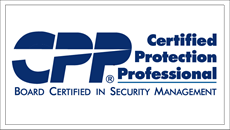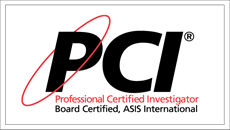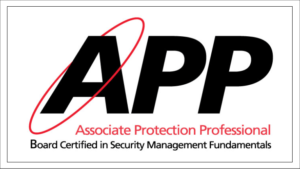Credibility. Influence. Opportunity.
Earning an ASIS board certification is a visible acknowledgment that you possess a mastery of core security principles and skills essential to the best practice of security management. It shows you are committed to excellence, professional growth, and a code of conduct.
Ready to achieve your professional and personal best? Choose the certification that’s right for you.

Certified Protection Professional (CPPⓇ)
The Certified Protection Professional (CPP) is considered the “gold standard” for security management professionals. This certification validates your knowledge in all areas of security management. Eligibility requirements include 7-9 years of security experience and 3 years in responsible charge of a security function.

Physical Security Professional (PSPⓇ)
The Physical Security Professional (PSP) demonstrates your knowledge in physical security assessments, application, design, and integration of physical security systems, and implementation of security measures. Eligibility requirements include a high school diploma, GED equivalent, or associate degree AND six years of progressive experience in the physical security field OR a Bachelor’s degree or higher AND four years of progressive experience in the physical security field.

Professional Certified Investigator (PCIⓇ)
The Professional Certified Investigator (PCI) certification provides demonstrable proof of an individual’s knowledge and experience in case management, evidence collection, and preparation of reports and testimony to substantiate findings. Requirements include a high school diploma or GED equivalent and five years of investigations experience, with at least two years in case management.

Physical Security Professional (PSPⓇ)
Associate Protection Professional (APP)
The Associate Protection Professional (APP) designation provides the first “rung” on the security manager’s career ladder. It is for those with 1-4 years of security management experience and measures the professional’s knowledge of security management fundamentals, business operations, risk management, and response management.
